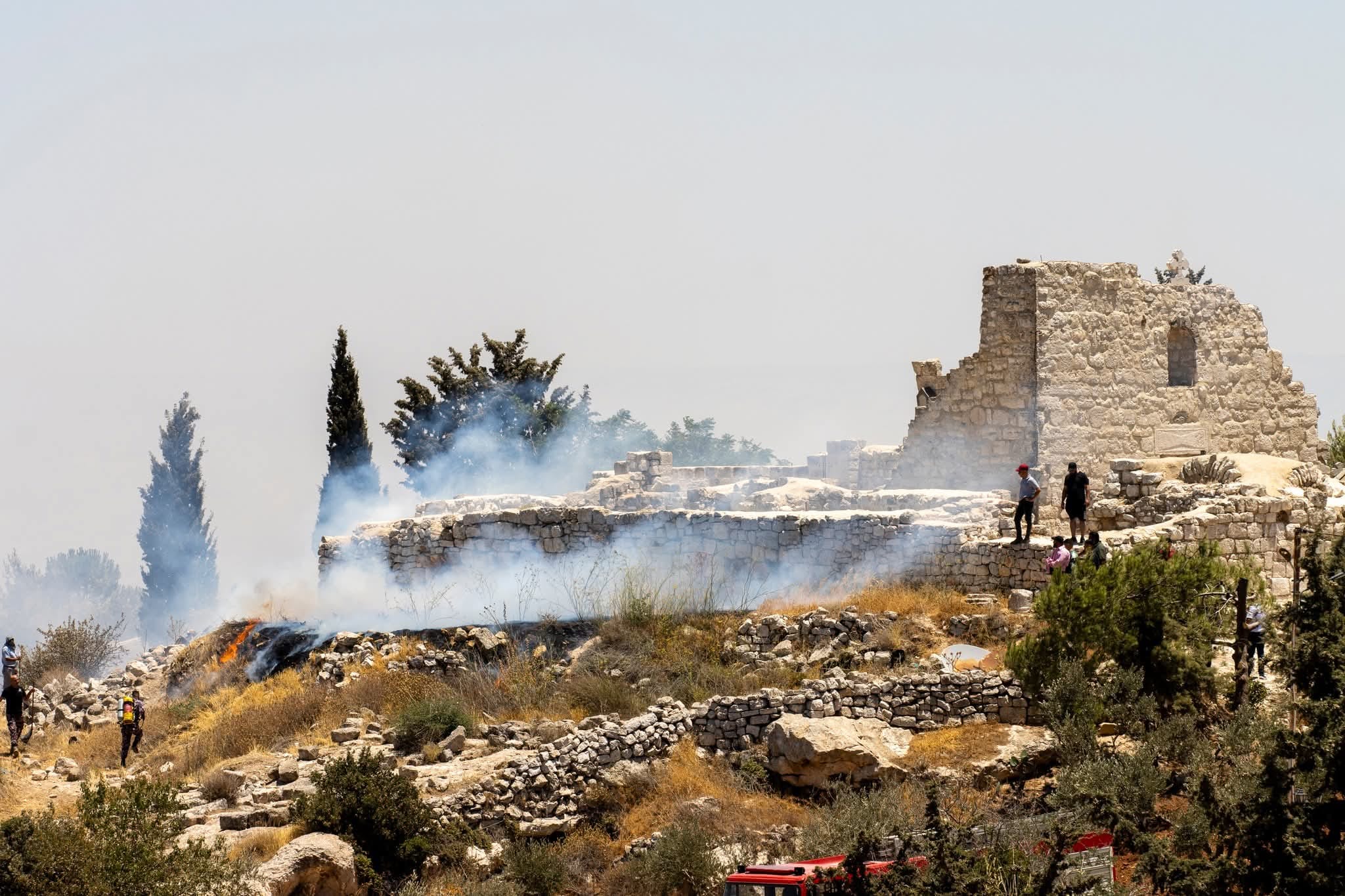In the hills of the West Bank lies Taybeh — a small village with a big heart and a deep-rooted history.
Known in biblical times as Ephraim, the town where Jesus once found refuge after raising Lazarus, Taybeh today is the only entirely Christian village remaining in the region.
But despite its spiritual significance and peaceful identity, Taybeh is now under threat.
Settlers Set Fires as Tensions Escalate
Over the past few weeks, Israeli settlers have launched a series of aggressive attacks on Taybeh — torching olive groves, damaging historic structures, and spreading fear among the town’s 300 or so remaining residents.
According to local priests, these acts are a direct assault on both the dignity of Taybeh’s people and the sanctity of their land.
Leaders from the town’s Latin, Greek Orthodox, and Melkite Greek Catholic churches released a statement condemning the attacks, saying the settlers aim to undermine the very presence of Christians in the region.
A Priest With Deep Roots and Deeper Concern
Father Bashar Fawadleh, the Latin Rite parish priest of Taybeh since 2021, has witnessed the village’s suffering firsthand.
Originally from the nearby town of Aboud and the son of a Venezuelan mother, Father Fawadleh says the attacks are unlike anything he’s seen before.
“The real goal is to push us out,” he explained.
“They want to claim this land as theirs. And by making life unbearable for us, they hope we’ll give up and leave.”
Fear Among Farmers and a Crumbling Economy
Taybeh’s economy, built mostly on olive oil production, has taken a major hit.
Farmers are now afraid to enter their fields, and unemployment has soared.
To make matters worse, Palestinians from Taybeh are banned from entering Jerusalem — just an hour’s drive away — where many once worked.
While the Latin Patriarchate of Jerusalem is stepping in to provide essentials like food and school fees, Father Fawadleh says it’s not enough.
“What we really need,” he said, “is an end to the violence.
We need peace, justice, and the freedom to live in our own land.”
A Community That Refuses to Lose Faith
Despite the fear and uncertainty, the people of Taybeh are holding on to their hope — grounded in their Christian faith.
“We still smile, we still celebrate,” Father Fawadleh said.
“Because our belief in the resurrection of Jesus keeps our spirits alive.”
And he has a powerful request: prayer. He’s calling on people of all faiths to pray for Taybeh — not just for the village, but for peace across all nations.
“Peace is the fruit of justice,” he said. “And we all must seek it.”
A Personal Invitation to Witness the Truth
In a heartfelt appeal, Father Fawadleh urged people from around the world to come and see Taybeh for themselves.
“Come visit us. Stay in our homes. See how we live,” he said.
He believes that tourism can keep Taybeh alive, encouraging residents to remain and affirming their place in the Holy Land.
“We are living stones,” he added. “We are part of this land where Jesus walked.
And when people come here, they can return home and speak the truth of what they witnessed.”
A Visit of Hope on the Horizon
In a show of solidarity, the heads of Christian churches across the Holy Land are set to visit Taybeh on Monday, July 14.
For the village, this visit is a deeply emotional moment — proof that they are not forgotten.
“They will pray with us in the Church of St. George,” Father Fawadleh said.
“And through unity, we’ll be able to hear God’s voice and remember that He has not abandoned us.”
A Final Message of Peace
Father Fawadleh’s final words echo far beyond Taybeh: “Here, in this sacred place, we seek peace.
Not just for Palestine, but for every nation. We believe that through love and unity, we will find the path forward.”



